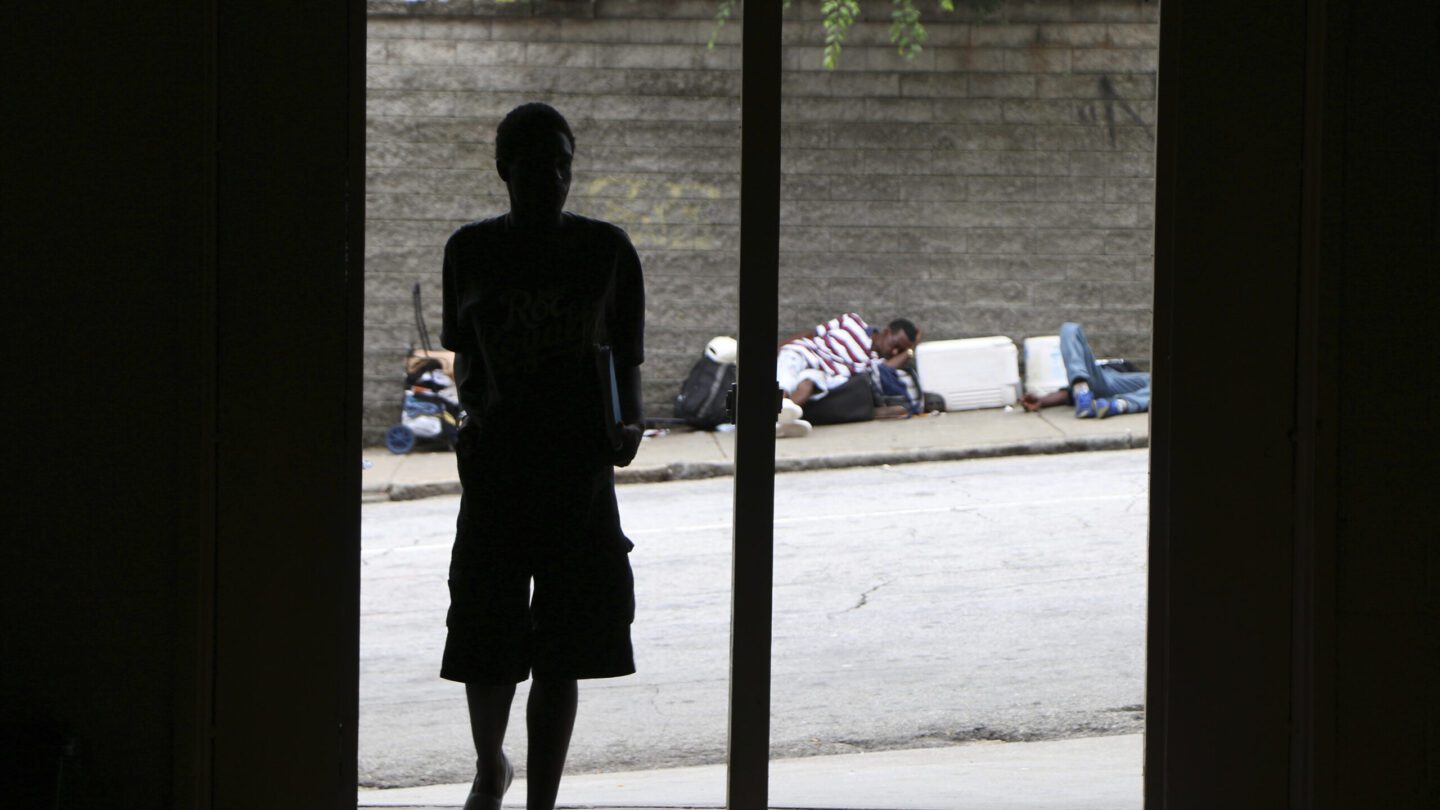Homeless Population Continues To Shrink In Atlanta’s Latest Count

When the health crisis started in March, the number of people seeking shelter tripled because of the closure of churches, and homeless shelters had to stop taking new clients to stop the communal spread of COVID-19.
Robert Ray / Associated Press
New numbers from the city of Atlanta show homelessness is continuing to decline.
The city identified just over 3,000 homeless people in its annual census in January — a 14 percent decrease since last year.
But while the total number from the count is reassuring, Jack Hardin, co-chair of the United Way’s Regional Commission on Homelessness, said there are some discouraging figures.
Homelessness among veterans and families rose slightly this year, and so did the number of homeless sleeping on streets, rather than in shelters.
“The numbers will do their job which is to help us know where we need to focus,” Hardin said. “One of the areas we need to focus on is street outreach.”
He said the increase in the number of unsheltered homeless may be related to the closing of the large midtown shelter, Peachtree-Pine.
That left the city without an emergency men’s shelter for several months.
“That probably meant that people who might’ve accessed such a shelter wound up on the streets,” Hardin said.
Overall, the city has seen a roughly 30 percent drop in homelessness since 2015, when it started using the current counting technique.
It relies on volunteers who canvass the city and survey each person who self-reports as homeless.
Nationally, homelessness increased for the first time last year—with west coast cities, like Los Angeles and Seattle, fueling most of that growth.








